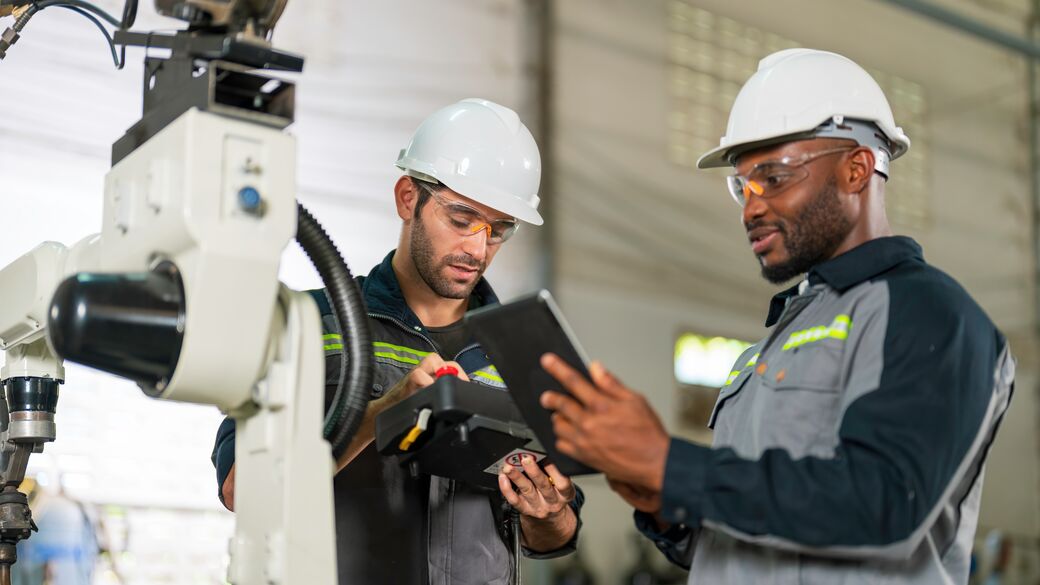Getting something from point A to point B is straightforward work. That's probably why many distributors still rely on human labor and paper tracking. While the distribution industry hasn't always been an early user of new technology, new tools are about to transform operations. And the future is exciting.
Artificial intelligence (AI) makes distribution faster and easier. Tools collect valuable data and suggest actions to streamline operations and boost profits. AI can predict consumer demand. And AI in distribution can give sales reps access to information to help them better serve their customers.
By using AI technology, distributors can grow their businesses in these three important areas.
Customer Service and Sales
Customers want to feel valued, and AI can be a distributor's secret weapon to providing great service.
For example, AI arms reps with information while they're on sales calls. Using a mobile device, they can check a customer's recent orders. They know if a product is available. They can get a delivery date. And they can check the current price. This information helps reps so they don't sell items that are out of stock and disappoint customers.
AI reports can also flag customers whose buying habits have changed. Sales reps can stop by their location at just the right time. By rebuilding relationships, they might prevent customers from placing an order with a competitor.
AI can also help sales reps maximize profits. AI technology identifies territories with the best sales so reps know where to spend their time. Reports identify which customers are very focused on prices and who may not order after a price increase. They can also identify which customers would probably be willing to pay a higher amount without pushing back.
Inventory
Knowing how much inventory to keep is one of the most important decisions for distributors. AI can help companies avoid having to liquidate stale products or run out of a popular item.
AI analyzes sales history, order patterns, and returns. It can also check commodity pricing, economic conditions, and even weather situations that might impact delivery. Then AI turns this data into actions.
For example, AI can identify items that are selling well and automatically restock them when inventory is low. This helps distributors avoid lost sales. AI can also pinpoint items that aren't selling well and suggest a discount. And AI can identify items that a distributor should discontinue because of flat sales.
Operations
Warehouse operations impact sales for distributors by speeding up orders. AI can enable warehouse automation to aid the process. For example, AI makes voice-picking technology better by improving speech recognition and hands-free operations. This can improve accuracy and speed. Moving from a paper to voice picking system can reduce errors by up to 90%, reports The Balance Small Business.
Using robotics technology in distribution centers can create faster and safer operations—and turn your boring DC into a smart warehouse. Some robots move across the warehouse floor, picking and delivering orders to workers for shipment. More sophisticated systems pick and deliver products directly to the customer. For example, Kroger recently tested a driverless car service in Arizona, and the grocer has plans to try these deliveries in other markets.
Amazon's distribution is the gold standard of robotics. It uses 200,000 units in its fulfillment centers, reports IEEE Spectrum. Other companies use similar tools on a smaller scale. For example, Bonobos, an online men's clothing retailer, uses robots to pack and ship orders. The system has increased their productivity by 800%, reports Business Insider.
Some people are concerned that AI will take away human jobs. However, systems support teams instead of replacing them. AI helps improve accuracy and productivity. It can take on mundane tasks that can reduce job satisfaction. And AI can also do repetitive movements that could cause employees injury.
The Future of AI and Distribution
Distributors are excited to move into the future. In fact, shipments of robot units to warehouses are expected to increase from just 40,000 in 2016 to 620,000 units annually by 2021, according to the market intelligence firm Tractica.
AI can help distributors grow and expand their businesses by improving logistics, profits, and customer service. With man and machine working side by side, customers, companies, and employees can all win.








